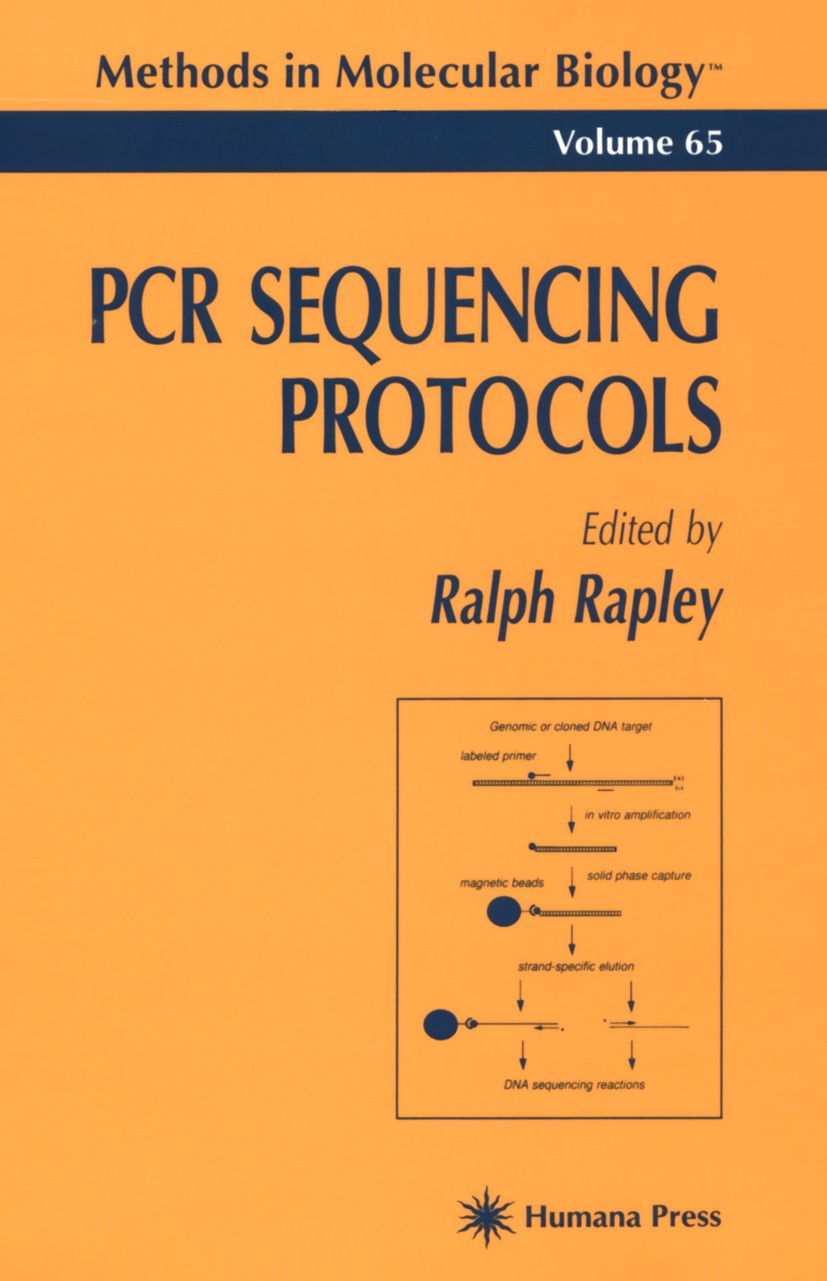| 书目名称 | PCR Sequencing Protocols | | 编辑 | Ralph Rapley | | 视频video | http://file.papertrans.cn/741/740073/740073.mp4 | | 丛书名称 | Methods in Molecular Biology | | 图书封面 |  | | 描述 | Advances in bioscience research usually arise as a result of the continu ing refinement of existing technologies. However, there are a number of occa sions v^rhere newly developed methodologies have a profound effect on nearly all areas of research. Frequently these are techniques that are elegantly simple in concept and require minimal technical manipulation. Two of these revolu tionary techniques are the focus ofPCR Sequencing Protocols. The first such technique is enzymatic chain termination sequencing developed by Sanger and his co-workers in Cambridge and reported in 1977. This essentially brought the possibility of deriving nucleotide sequence information in a very short time scale and has been widely accepted in many laboratories as a routine molecular biological research tool. Furthermore, it has not only led to the sequencing of many genes and gene fragments, but has also allowed the tech nical means of sequencing the human genome. The second technique that has found widespread acceptance in basic applied research and many routine applications is the polymerase chain reac tion. This technique, first reported in 1985 by MuUis and his colleagues, pro vides the means to | | 出版日期 | Book 1996 | | 版次 | 1 | | doi | https://doi.org/10.1385/0896033449 | | isbn_softcover | 978-1-4899-4038-4 | | isbn_ebook | 978-1-59259-551-8Series ISSN 1064-3745 Series E-ISSN 1940-6029 | | issn_series | 1064-3745 | | copyright | Springer Science+Business Media New York 1996 |
The information of publication is updating

|
|
 |Archiver|手机版|小黑屋|
派博传思国际
( 京公网安备110108008328)
GMT+8, 2026-1-20 12:48
|Archiver|手机版|小黑屋|
派博传思国际
( 京公网安备110108008328)
GMT+8, 2026-1-20 12:48


